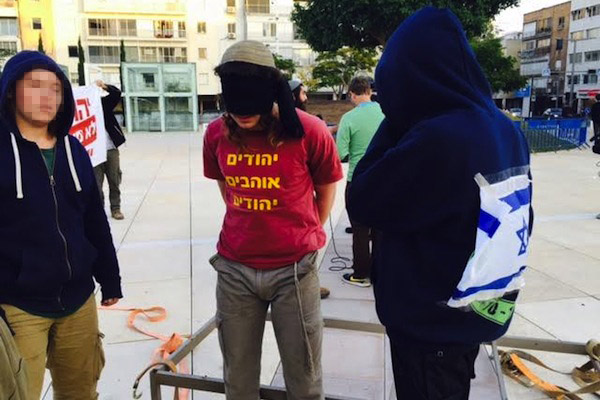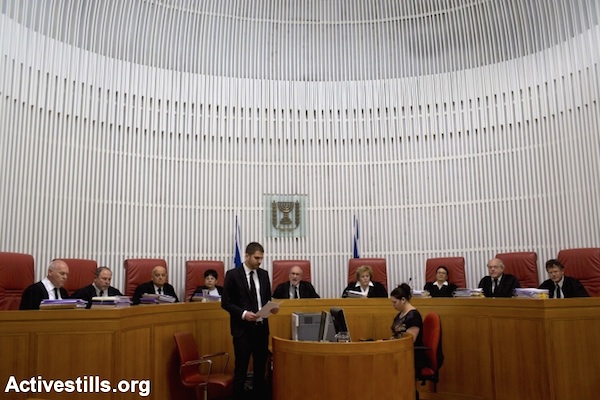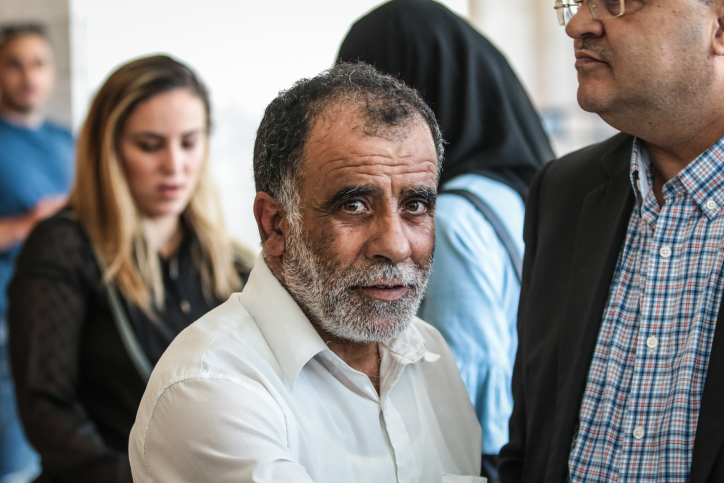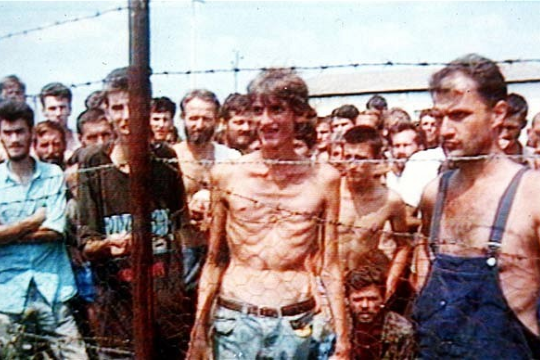Both left and right-wingers hailed a decision by an Israeli court to throw out parts of confessions provided by two Israelis suspected of a murdering a Palestinian family because they were obtained through torture. The shared satisfaction across political camps is rare. It is also flawed and worrying.

Both left-wing and right-wing voices lauded an Israeli court on Tuesday for throwing out parts of the confessions provided by two Israeli Jews suspected of a lethal terror attack against a Palestinian family, because they were obtained through torture. In the middle of the night in August 2015, attackers set fire to the Dawabshe family home in Duma, outside Nablus. Both parents, Saed and Riham Dawabshe, and their baby son, Ali, were burned to death. Ahmed, four at the time, suffered severe burns, and has required extensive surgeries and rehabilitation.
The shared satisfaction across political camps about the ruling is rare; it is also flawed and worrying. Why?
The Public Committee Against Torture in Israel (PCATI), a tireless human rights organization, broke with its usual statements of outrage to issue a rare positive response.
Throwing out the confessions is “commendable,” PCATI wrote, noting that “[t]he judgment also clearly stated that ‘necessity interrogations’ are a severe violation of basic human rights, and as such disqualify their products.”
Physicians for Human Rights — Israel, another dogged human rights organization, gave a similarly enthusiastic response decrying the use of torture in any form.
Meanwhile Haim Shain, a right-wing commentator for the pro-Netanyahu Israel Hayom newspaper, wrote: “A freedom-seeking democracy should not allow interrogators to employ any means without limits or proportionality to reveal the truth. It is obliged to find the appropriate balance between protecting human dignity and the right of the public to live secure from criminals and terrorists…” Such words would make any human rights organization proud.
And in fact, supporters of human rights should laud the court’s decision. This was different from the horror scenes of Abu Ghraib, which represented a total breakdown of command and pornographic levels of torture. Rather, Israel’s internal security agency (Shin Bet) had prior legal approval from the attorney general to use “special methods,” which reportedly included forcing suspects to hold painful positions for long hours. The exact nature of the interrogation tactics have not been made public.

In 1999, the Israeli High Court outlawed the use of torture but left a loophole for suspects who are considered a “ticking bomb,” when the information may help prevent imminent attacks. Critics view this policy as a form of legalized torture under sanitized names, most commonly applied to Palestinian terror suspects.
Lawyers for the Jewish Duma suspects, however, argued that the interrogations were intended to elicit confessions for a past crime, not to prevent a future crime. They insisted that the methods were not justified by the “ticking bomb” approach.
Yet the court, clearly wary of shutting down the entire case and letting suspected murderers go scot-free, ruled that portions of the confessions were admissible. For example, one of the suspects reportedly re-enacted the crime in the days after the “special interrogation methods,” yielding details that the Shin Bet claims only someone who was on the scene could have known. Allowing this portion of the confession leaves the prosecution with a substantive case.
***
But commending the verdict without qualification, however tempting, is also deeply flawed and possibly damaging. The case symbolizes such a complex brew of the politics and anguish of conflict, that it is impossible to pick apart one element — the rejection of confessions through torture — and say justice has been done.
The investigation, the court ruling and the responses raise searing dilemmas.
If the judges had backtracked on Israeli High Court rulings against the legality of torture to approve the methods used, Israel would not be able to maintain its self-image as a country that upholds civil and human rights for its citizens – the country’s Jewish citizenry might turn against the government.

Yet if the court had ruled that all such methods are to be rejected outright, the Shin Bet would forever have been limited in its ability to interrogate Palestinian suspects, Israeli analysts noted. The next option, a ruling that would openly protect the rights of only Jews or Israeli citizens would expose the entire legal system in the context of conflict as a farce.
The judges appear to have sought a compromise by admitting the evidence extracted outside the immediate experience of physical pressure, while making their the statement against such methods by rejecting a one part of those confessions.
***
Noble perhaps, but the ruling does not exist in a vacuum. The weakening of the prosecution’s case, along with the painfully slow proceedings for a crime committed in 2015, are for many a statement that Israel excuses or doesn’t take seriously murder when committed by Jews, even the slaughter of a sleeping family.
The far right is already leveraging the decision to pull the debate further in its direction. Honenu, an organization that defends Jewish terror suspects, and Jewish Home lawmaker Bezalel Smotrich — berated the court and the Shin Bet. Smotrich argued that the information the judges ruled admissible was also supplied under psychological duress. Shmuel Medad, the head of Honenu, accused the Shin Bet of knowing that confessions were extorted from the suspects because they feared returning “to the torture chamber.” They want all of the confessions thrown out.
For direct supporters of the suspects, the court’s decision risks being perverted, by emboldening the wild-eyed men and boys outside the courtroom on Tuesday who chanted at the dead toddler’s grandfather “Ali has been burned, Ali’s on the grill.”

And following Tuesday’s ruling in favor of the suspects, it’s hard to imagine that Palestinians have not lost all faith in the Israeli legal system entirely — if there was any left at all.
When Israel accuses Palestinians of conflict-related violence, they are tried in military courts with conviction rates upwards of 99 percent. In many other cases, they are simply thrown in prison under “administrative detention,” a form of open-ended imprisonment without any charge or trial.
Juxtapose this with the case of Ahed Tamimi, an unarmed teenage girl currently in prison for slapping a soldier. She was arrested at night, denied bail, swiftly convicted and sentenced to prison, her family members were even arrested. When a trial of Jewish Israelis accused of murder drags on for three years with no justice done, the law becomes a farce.
The Dawabshe family has been attacked again by arson since 2015. They live in permanent terror; they have no security, their loss is not quantifiable and it is collective. Palestinians as a whole will have watched as the Dawabshe case lay dormant and when the issue finally resurfaces, it is to favor the suspects by protecting them from torture, a right Palestinians have been denied collectively for five decades.
***
Justice passed on nationalist violence is always fraught with collective and symbolic political anguish. When an Azerbaijani soldier who murdered an Armenian in 2004 – also while the victim slept – was released from a Hungarian prison eight years later and welcomed back in Azerbaijan as a hero, the Armenian community experienced massive outrage. The event significantly damaged already poor levels of trust between the two communities locked in a decades-old bloody territorial conflict.
International war crimes trials against those suspected of committing atrocities during the wars of Yugoslavia in the 1990s were intended to hold perpetrators responsible. But every acquittal sparked outrage among the ethnic group of the victims, leading to grave doubts about the tribunal’s legacy and contribution.

Here is the complicated conclusion: by no means should we conclude that torture should have been permitted. I, too, strive for a justice system that decries torture against all individuals — Palestinian and Israeli suspects alike. At the same time, the putative victory has little meaning in terms of the collective symbolism of justice that such a trial must also provide.
Justice is much less meaningful when it has been done for a community that is bloated by over-privilege, like children sick from too many sweets. For them, no law is good enough unless it is rewritten to give them a free license for anything.

